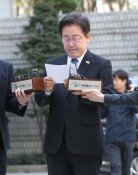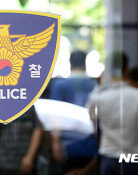Medical residents work less from May
Medical residents work less from May
Posted March. 29, 2024 07:39,
Updated March. 29, 2024 07:39
The South Korean government plans to implement a shorter shift system for hospital residents this May and expand the current grant program to provide residents in surgery, cardiothoracic surgery, and pediatrics with a monthly amount of one million won to support residents in other essential medical fields such as childbirth and emergency medicine.
Deputy Minister Jun Byung-wang of the Office for Planning and Coordination in the Ministry of Health and Welfare said in a meeting of the Central Disaster and Safety Countermeasure Headquarters on Thursday that it is more urgent to tackle the 36-hour-shift system rather than the 80-hour workweek framework, expecting that related issues would be lessened or resolved by improving the system and producing medical workforces to facilitate medical residency.
Additionally, the government will increase support for residents’ training programs. Since Wednesday, it has granted one million won a month not only to residents in surgery and cardiothoracic surgery but also to those in pediatrics. The subsidy program will benefit residents in other essential medical disciplines, including childbearing and emergency medicine.
According to the deputy minister, the government and the ruling party are still discussing President Yoon Suk Yeol's order to impose "flexible disciplinary measures” on residents. "It is unlikely that the health ministry will take administrative action (such as the suspension of doctor licenses) immediately. However, the number of those subject to disciplinary measures will only increase over time,” he said, implying that residents’ licenses will remain effective, at least during the ongoing discussion between the government and the ruling party.
여근호 기자 yeoroot@donga.com







